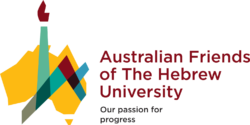International Conference on Genetics and Genomics of Solar Plants
Harvesting Gene-Editing Technology to Feed Future Generations
(Jerusalem, September 15, 2019)— Scientists have proved that it’s possible to use innovative gene-editing to domesticate wild plant species and turn them into agricultural crops. For example, researchers have been able to modify tomato plant genes (that determine flowering) to increase fruit yield. Traditional genetic processes are able to transform wild species into crop plants but this process takes hundreds and often thousands of years to complete.
Now, new gene-editing technology allows scientists to circumvent natural selection and cultivation practices, and to create—or enhance—new crops to adequately feed growing populations and provide food security for future generations. It should be noted that genetically-edited plants are non-transgenic, meaning they do not contain foreign DNA and are therefore not considered by many countries to be “genetically modified”.
The results of these studies will be presented at the 16th International Conference on Genetics and Genomics of Solar Plants, to be held in Jerusalem on September 15-19 (https://www.sol2019.org/). More than 350 participants from 27 countries will present 200 new discoveries in the important Solanaceae crops, which include the nightshade vegetables—potatoes, tomatoes, peppers and eggplants. These studies have contributed greatly to the future needs of world nutrition and the promotion of sustainable agriculture.
One of the conference’s key issues is: improving the nutritional value of crops. Researchers from England, Spain Holland and Israel will present studies on improving the nutritional value of the tomato fruit, its quality and even its taste.
Israel is one of the world’s leading tomato genetics countries. Organizers of the conference include Prof. Danny Zamir (Chair), Prof. Naomi Ori, Prof. Joseph Hirschberg and Mrs. Zili Pleban of the Hebrew University, Prof. Avraham Levy of the Weizmann Institute, and Dr. Ilan Paran of the Volcani Institute.
For more information, contact Hebrew University Prof. Joseph Hirschberg ++972-54-212-5109, hirschu@mail.huji.ac.il

